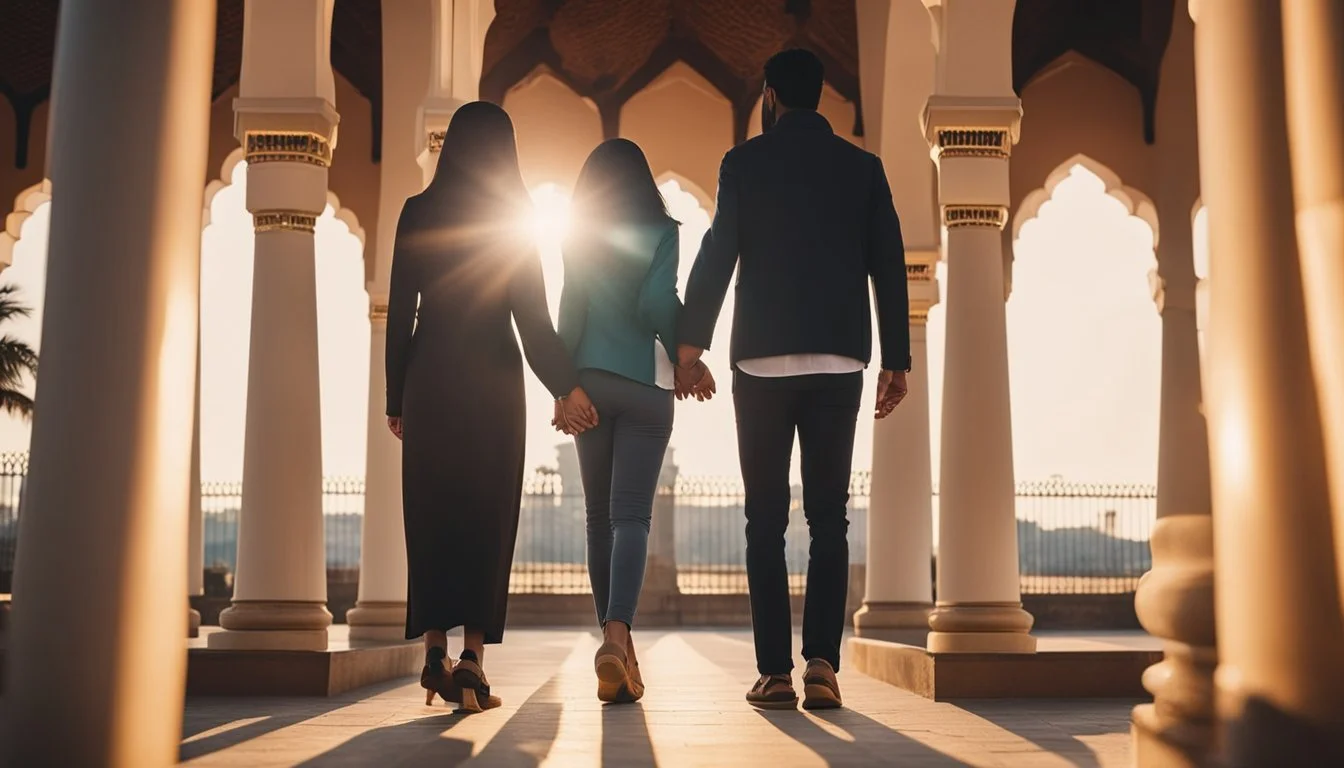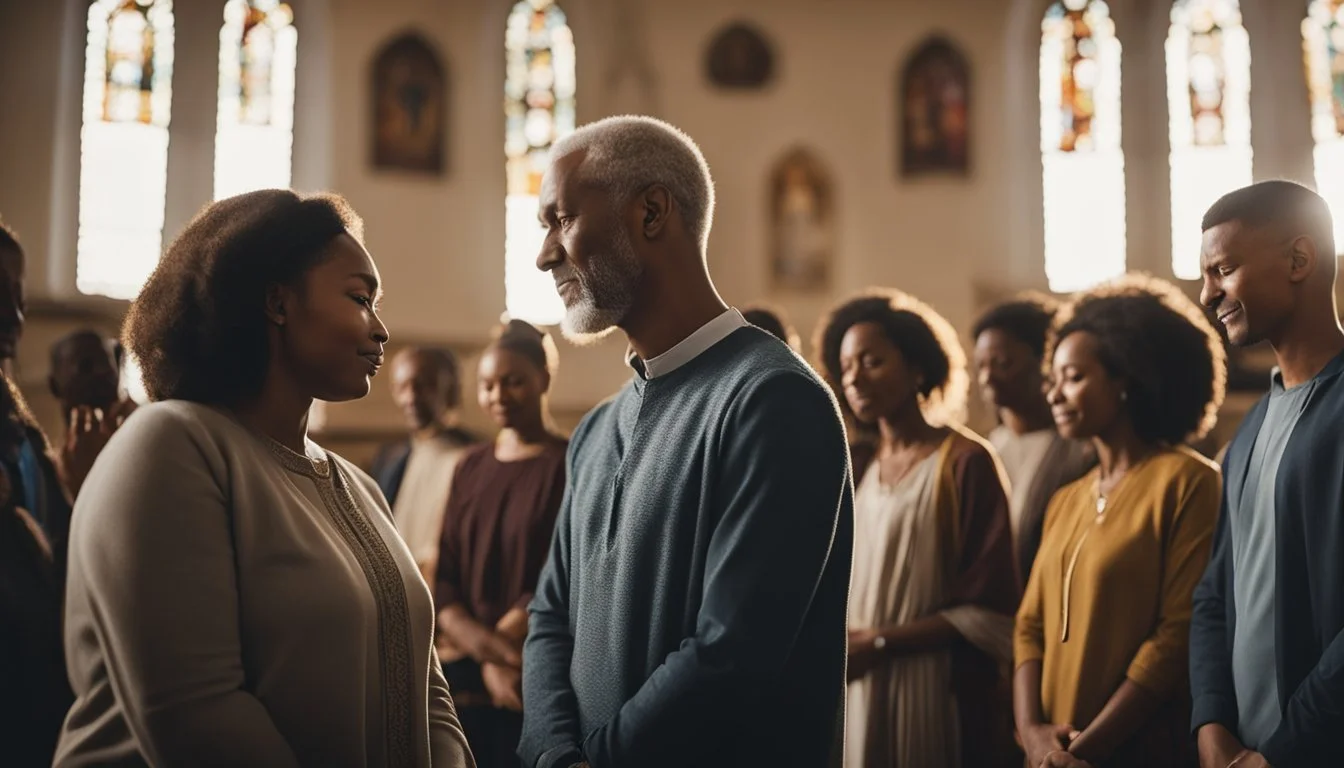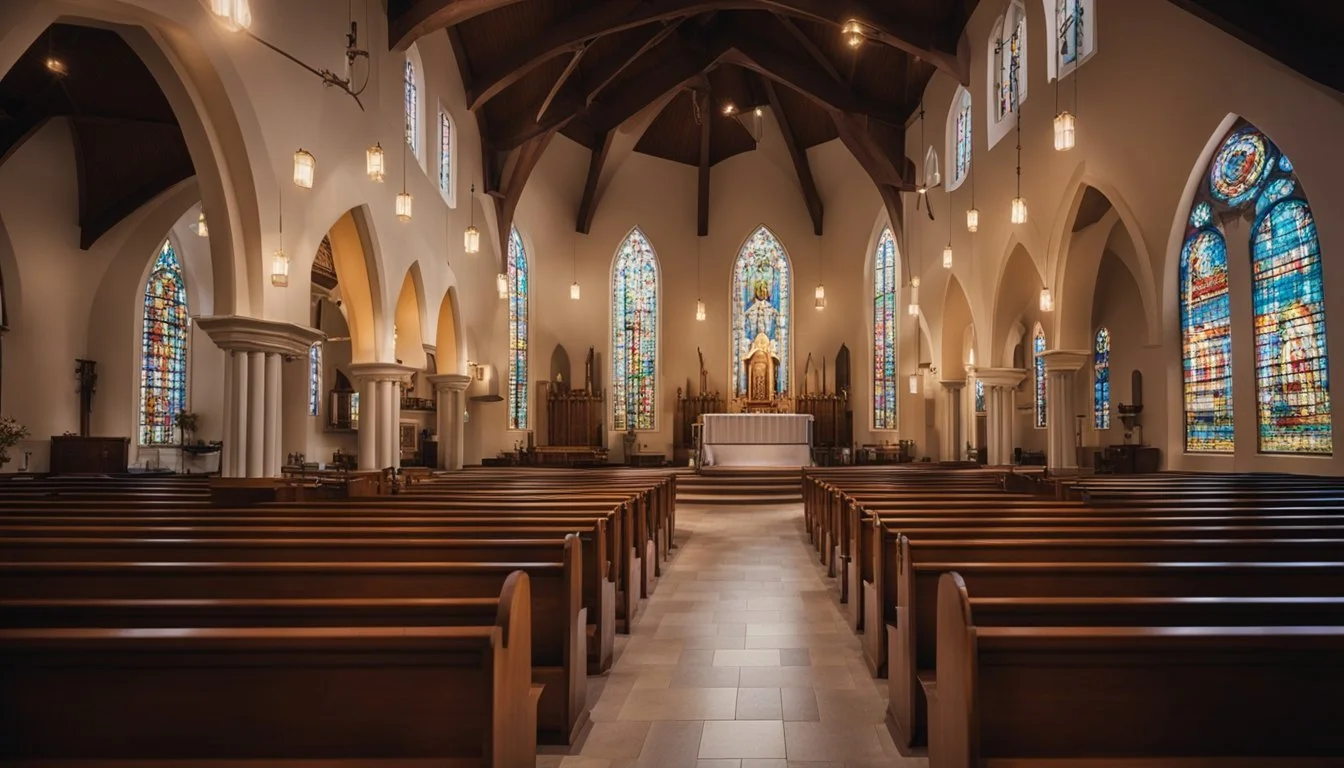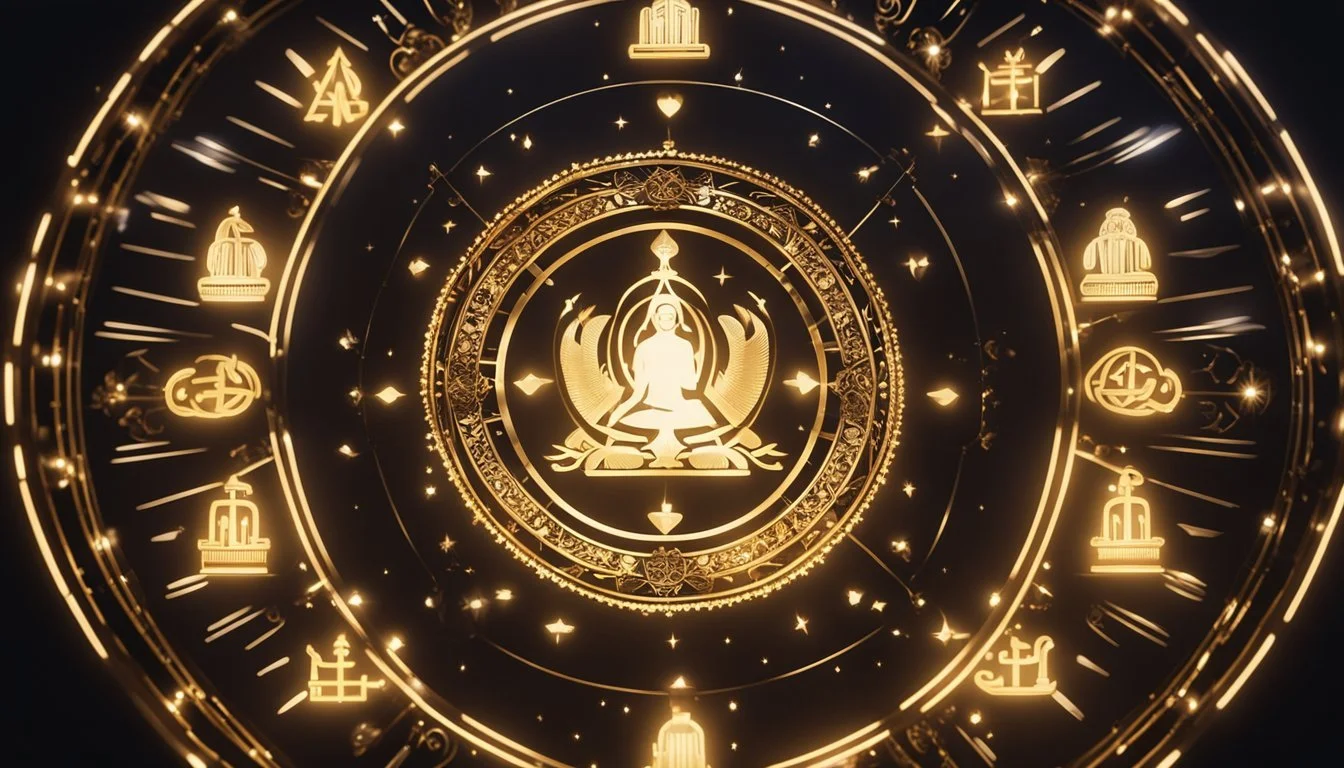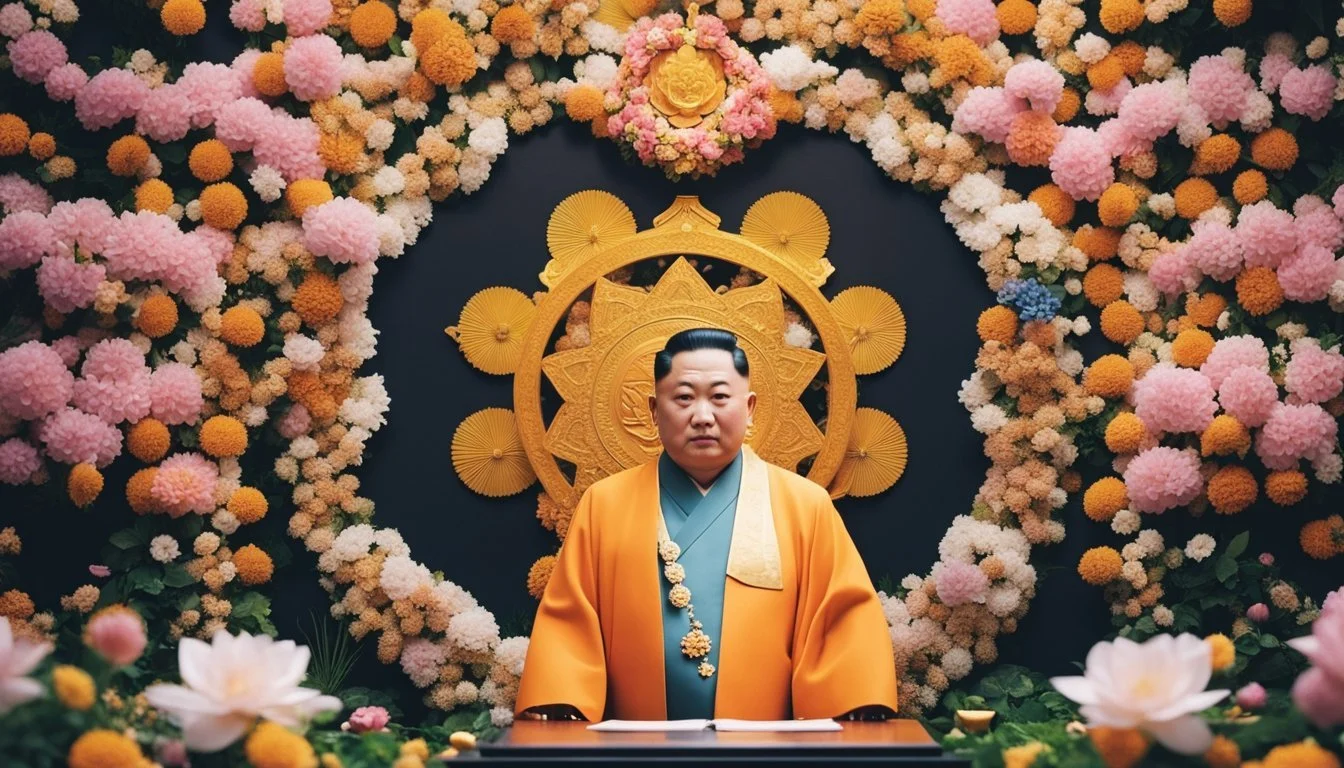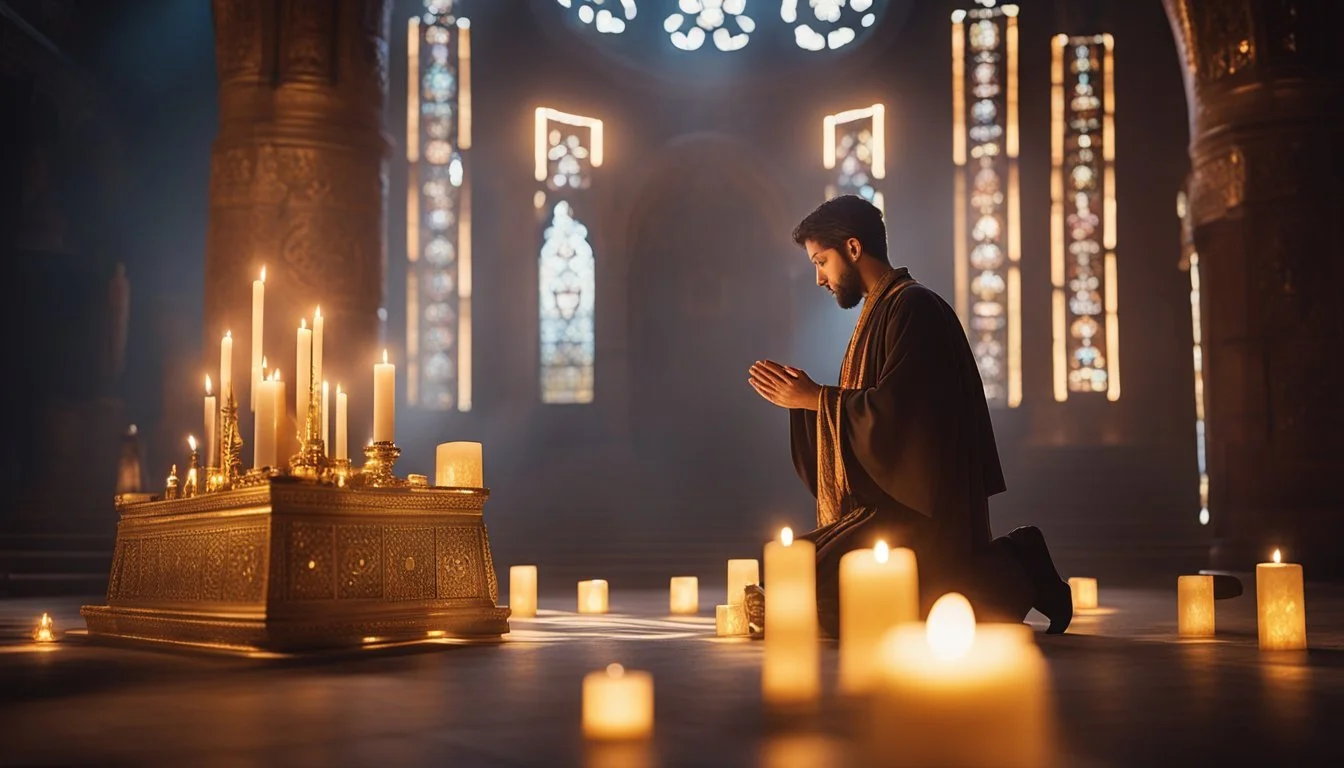7 Documentaries That Examine Love in the Context of Religion
Exploring Faith and Romance
Documentaries provide a unique window into the complex interplay between love and religion. These films explore how faith shapes romantic relationships, family dynamics, and personal identities across different cultures and belief systems.
By examining real-life stories and expert insights, these documentaries offer viewers a deeper understanding of how religious values influence human connections. From traditional arranged marriages to interfaith partnerships, the selected films highlight diverse perspectives on love within religious contexts. They shed light on both the challenges and joys that arise when matters of the heart intersect with spiritual convictions.
1) Jesus Camp (2006)
"Jesus Camp" offers a compelling look into an evangelical Christian summer camp in North Dakota. The documentary follows children attending the "Kids on Fire School of Ministry" camp.
The film explores how religion shapes young minds and influences relationships. It showcases the camp's activities and teachings, which aim to create a new generation of Christian leaders.
Directors Heidi Ewing and Rachel Grady present an unbiased view of the camp's practices. They capture intense prayer sessions, political discussions, and emotional experiences of the young attendees.
The documentary sparked controversy upon release due to its portrayal of children being taught to take on spiritual warfare. It raises questions about the impact of religious indoctrination on youth.
"Jesus Camp" provides insight into a specific subset of evangelical Christianity in America. It offers viewers a chance to observe and reflect on the intersection of faith, politics, and childhood.
More information on Jesus Camp
2) Love the Sinner (2017)
Love the Sinner is a short documentary that explores the intersection of Christianity and homophobia. Directed by Jessica Devaney and Geeta Gandbhir, the film was created in response to the 2016 Pulse nightclub shooting in Orlando, Florida.
The documentary follows Devaney, a queer filmmaker who grew up in an Evangelical Christian community in Florida. She examines her own background and the broader cultural context that contributed to the tragedy.
Love the Sinner delves into the complex relationship between fundamentalist Christianity and attitudes towards the LGBTQIA community. The film aims to spark conversations about faith, sexuality, and acceptance.
At 17 minutes long, Love the Sinner offers a personal perspective on a broader societal issue. It challenges viewers to consider the role of religious beliefs in shaping attitudes towards marginalized groups.
The documentary has been screened at various film festivals and is available for rent on platforms like Amazon Prime Video and Vimeo. It serves as a tool for initiating discussions about LGBTQ affirmation within faith communities.
More information about Love the Sinner
3) Trembling Before G-d (2001)
Trembling Before G-d explores the lives of gay and lesbian Orthodox Jews as they navigate their faith and sexuality. The documentary follows individuals who struggle to reconcile their religious beliefs with their sexual orientation.
Director Sandi Simcha DuBowski interviews gay and lesbian Orthodox Jews, rabbis, and psychotherapists. The film sheds light on the challenges faced by LGBTQ+ individuals within conservative religious communities.
Participants share personal stories of coming out, facing rejection, and seeking acceptance. Some choose to leave their Orthodox communities, while others attempt to maintain their faith despite the conflict.
The documentary received critical acclaim and won several awards. It sparked important conversations about sexuality and religious traditions within Orthodox Jewish communities.
Trembling Before G-d offers a poignant look at the intersection of faith, tradition, and personal identity. It highlights the complexities of balancing deeply held religious beliefs with one's sexual orientation.
More information on Trembling Before G-d
4) God Loves Uganda
"God Loves Uganda" (2013) examines the influence of American evangelical missionaries in Uganda. The documentary, directed by Roger Ross Williams, explores the complex relationship between religion and social issues in the African nation.
The film highlights how some American evangelicals promoted conservative Christian values in Uganda. It shows their efforts to shape Ugandan society and politics, particularly regarding LGBTQ+ rights.
Williams' work reveals the unintended consequences of missionary activities. The documentary suggests a connection between evangelical teachings and Uganda's strict anti-homosexuality laws.
"God Loves Uganda" features interviews with both Ugandan citizens and American missionaries. It presents a balanced view of the situation, allowing viewers to draw their own conclusions about the impact of religious outreach.
The film received critical acclaim for its thought-provoking exploration of faith, culture, and human rights. It sparked important conversations about the global influence of religious movements.
More information on "God Loves Uganda"
5) The Keepers (2017)
"The Keepers" is a Netflix documentary series that delves into the unsolved murder of Sister Catherine Cesnik, a Catholic nun and teacher. The seven-episode series explores the complex relationship between religion and crime.
The documentary focuses on the events surrounding Archbishop Keough High School in Baltimore, where Sister Cesnik taught. It uncovers allegations of sexual abuse by priests at the school, particularly Father Joseph Maskell.
Former students of Sister Cesnik play a crucial role in the investigation. They believe her murder may be linked to her knowledge of the alleged abuse taking place at the school.
"The Keepers" examines how religious institutions can sometimes shield perpetrators of crimes. It highlights the power dynamics within the Catholic Church and the impact on victims of abuse.
The series also showcases the strength and determination of the victims who continue to seek justice decades after the events took place. It raises questions about the intersection of faith, power, and accountability in religious settings.
More information on "The Keepers"
6) Kimjongilia (2009)
Kimjongilia examines the power of faith and devotion in the context of North Korea's authoritarian regime. Directed by N.C. Heikin, this documentary provides a unique perspective on how love for a leader can be twisted into a form of religious worship.
The film features interviews with North Korean defectors who share their harrowing experiences under Kim Jong Il's rule. Their stories reveal how the state manipulates emotions and beliefs to maintain control over its citizens.
Kimjongilia takes its name from a flower cultivated to honor Kim Jong Il, symbolizing the cult of personality surrounding the leader. The documentary explores how this devotion is cultivated through propaganda, education, and strict societal control.
Heikin's work sheds light on the psychological impact of living in a society where love for the leader is mandatory. It shows how this enforced adoration affects personal relationships and individual identities.
The film also touches on the resilience of the human spirit, as defectors describe their journeys to freedom and the challenges of adapting to life outside North Korea.
More information about Kimjongilia
7) An Honest Liar (2014)
"An Honest Liar" explores the life of James Randi, a renowned magician and skeptic. The documentary follows Randi's mission to expose fraudulent psychics, faith healers, and other charlatans.
While not directly about love and religion, the film touches on these themes through Randi's relationship with his partner José Alvarez. Their story highlights the challenges faced by LGBTQ+ individuals in religious communities.
The documentary showcases Randi's dedication to promoting critical thinking and scientific skepticism. His work often puts him at odds with religious beliefs and supernatural claims.
Randi's coming out at the age of 81 adds a personal dimension to the film. It illustrates how love can flourish even in the face of societal and religious pressures.
"An Honest Liar" offers a unique perspective on the intersection of skepticism, faith, and personal relationships. It challenges viewers to examine their own beliefs and the role of evidence in shaping worldviews.
Exploring Themes of Love Through Religious Lenses
Religious documentaries offer unique perspectives on love, exploring its various manifestations within faith traditions. These films examine how different belief systems shape cultural attitudes and personal relationships.
Cultural and Historical Perspectives
Religious documentaries often highlight how love is expressed in different cultures and historical contexts. In Hinduism, films explore the concept of bhakti, or devotional love for deities. Buddhist documentaries examine compassionate love for all beings. Christian films frequently focus on agape, unconditional love modeled after God's love for humanity.
Some documentaries trace the evolution of love in religious traditions over time. They may explore how interpretations of sacred texts regarding love and marriage have changed. Others examine how religious views on love have influenced art, literature, and social norms throughout history.
Interfaith Relationships
Documentaries tackling interfaith relationships reveal both challenges and triumphs. They often feature couples from different religious backgrounds navigating cultural differences and family expectations. Some films highlight successful interfaith marriages, showcasing how partners blend traditions and find common ground.
Other documentaries explore the tensions that can arise in interfaith relationships. They may examine issues like conversion pressures, conflicting values, or difficulties raising children across faith lines. These films often provide insights into religious tolerance and the complexities of love across cultural divides.
The Emotional Journey in Religious Contexts
Religious documentaries often explore the complex emotional landscapes of faith. They reveal how beliefs shape personal experiences and identities, highlighting both transformative moments and internal struggles.
Impact on Personal Beliefs
Religious beliefs profoundly influence emotional responses to life events. Documentaries like "Happy" (2011) showcase how spiritual practices contribute to mental well-being and happiness. These films capture moments of joy, reverence, and awe experienced by believers during rituals or personal revelations.
Some documentaries examine the challenging emotions that arise when faith is tested. They depict individuals grappling with doubt, fear, or guilt within their religious frameworks. The emotional toll of reconciling personal experiences with religious teachings becomes evident in these intimate portrayals.
Filmmakers also explore how religious beliefs affect decision-making in difficult situations. They present scenarios where faith guides moral choices, sometimes leading to internal conflicts or unexpected resolutions.
Transformation and Identity
Religious documentaries often focus on personal transformations sparked by spiritual experiences. They follow individuals as they embrace new beliefs, undergo conversion, or deepen their existing faith. These films capture the emotional upheaval and sense of renewal that accompany such profound changes.
Identity formation within religious contexts is another key theme. Documentaries explore how faith shapes self-perception and community belonging. They highlight the emotional security found in shared beliefs and practices, as well as the potential struggles of those who feel out of place.
Some films delve into the complexities of maintaining religious identity in secular societies. They depict the emotional challenges faced by believers navigating cultural differences and societal pressures while staying true to their faith.

